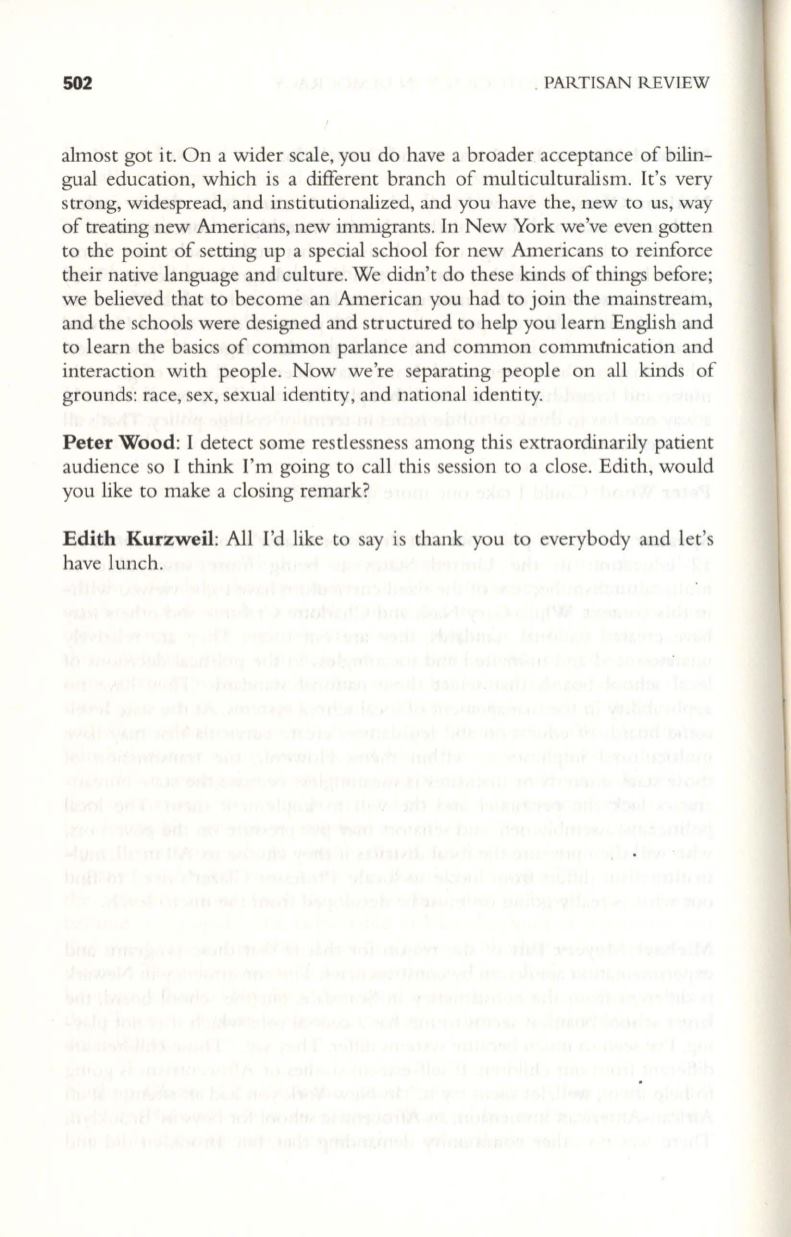
582
PARTISAN REVIEW
almost got it. On a wider scale, you do have a broader acceptance of bilin–
gual education, which is a different branch of multiculturalism. It's very
strong, widespread, and institutionalized, and you have the, new to us, way
of treating new Americans, new immigrants. In N ew York we've even gotten
to the point of setting up a special school for new Americans to reinforce
their native language and culture.We didn't do these kinds of things before;
we believed that to become an American you had to join the mains tream,
and the schools were designed and structured to help you learn English and
to learn the basics of common parlance and common comml1nication and
interaction with people. Now we're separating people on all kinds of
grounds: race, sex, sexual identity, and national identity.
Peter Wood: I
detect some restlessness among this extraordinarily patient
audience so I think I'm going to call this session to a close. Edith, would
you like to make a closing remark?
Edith KurzweiI:
All I'd like to say is thank you to everybody and let's
have lunch.


